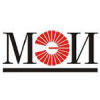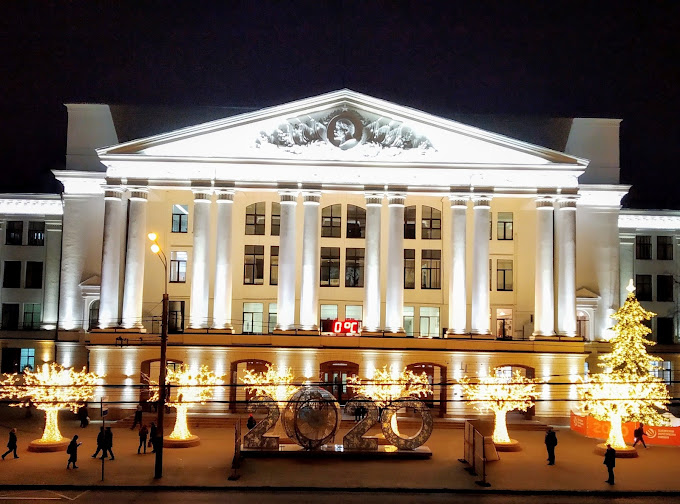Krasnokazarmennaya 14, build. 1, Moscow 111250, Russia
Career Counselling

The National Research University - Moscow Power Engineering Institute is a center of excellence in education and research located in Moscow, Russia. Established in 1930, it is especially well known for its work in highly technical areas like Power Engineering, Electrical Engineering, Radio Engineering and Electronics, Informatics and Computer Science. It is currently home to over 15,000 students, of which almost 15% are from outside Russia.
Academic and research activities at MPEI are carried out through 12 Institutes (Power Machinery and Mechanics, T...
| Establishment year | 1930 |
| Total Students | 15,500+ |
| International Students | ~2,000 |
| QS World University Rankings 2024 | 1201 - 1400 |
| Campus Size | N/A |
| Total Number of Campuses | 3 (2 in Moscow, 1 on the Black Sea) + 5 Branches |
| University Website | https://mpei.ru/lang/en/Pages/default.aspx |
| No. of Schools and Divisions | 12 Institutes |
| Nobel Prize Winner Alumni | 0 |
| No. of Education Programs | 76 (undergraduate), 61 (Master’s) |
| Student to Faculty ratio | 10:1 |
MPEI offers undergraduate and postgraduate courses through 12 Institutes, which are further subdivided into Departments and Research Centers.
All international applicants to MPEI must satisfy the following requirements:
In addition, applicants to different levels of programs have to submit proof of qualifications gained. For example, applicants to Master’s courses must be able to show a bachelor’s degree certificate and academic transcripts, duly certified by the relevant authorities. Undergraduate applicants need to submit a high school secondary examination (Year 12) leaving certificate.
Applicants to undergraduate courses at MPEI must follow these steps:
Applications to Master’s and PhD courses follow similar processes. However, the documents to be submitted are very different, and the timelines may vary as well, particularly for Doctoral degree applicants. It is recommended that all candidates check the course pages for their programs of interest or contact MPEI in case of any doubt during the postgraduate application process.
The University estimates that the tuition fees for international students are approximately $3,500 per year. Tuition fee information for individual Bachelor’s and Master’s courses can be found on the relevant web pages.
The lowest tuition fees for undergraduate courses are approximately $2,963 per year (for Business Informatics and Linguistics), and the highest annual UG tuition fees are $5,584, for the Bachelor’s in Design. The highest tuition fees for Master’s courses are approximately $4,375 per year, for Nuclear Power Engineering and Thermophysics.
Depending on the type of accommodation chosen, international students at MPEI can expect to pay approximately $100 per month on hostel living costs, which comes to $1000 per year, for ten months spent at the University. Students must also budget for medical insurance ($220 per year), food, travel, and shopping costs.

In addition to its three campuses within Russia, MPEI has 5 branches, some of which are in foreign countries. These are located in Smolensk, Voljskiy, Konakovo, Dushanbe, and Tajikistan.
The Students’ Union at MPEI gives the student body a voice in the management of University affairs. It carries out the following essential functions:
The Department of Physical Education and Sports coordinates the activities of all health and sports clubs at MPEI. It maintains an athletics stadium, mini-football grounds, tennis courts, swimming pools, sports complexes for indoor sports like volleyball and badminton, and fitness, aerobics, and gym premises. Elite Athletes from the University take part in the annual MPEI Sports Day events, where contests are held in 22 different disciplines. The flagship event is the Lefortovo Relay Race; which has been organized for nearly 8 decades. Each sport division at the University is headed by a renowned expert in the field, usually a Russian Master of Sport (a national champion).

There are several student clubs and organizations active in the areas of fine arts, performance, and cultural skills. These clubs organize events and schedule regular practice sessions at the MPEI House of Culture, which has venues for dance, theater, music, and other cultural performances.
The Department of Employment and Practical Training at MPEI is engaged in providing internships and job placements for all students of the University, and training the students to perform well during shortlisting processes and interviews. It maintains an online portal where students can see all the short term and long term employment options available to them according to their year of study and Department, and employers can access the resumes and relevant academic records of students who have applied to work with them.
The Career Center is open to both current students and graduates of MPEI. It allows them to find internships and full time jobs, and access resources related to resume writing, CV improvement, interview training, and soft skills improvement. It sets up Job Fairs, organizes presentations by large companies, sets up Professional Development Festivals, and invites companies and experts to seminars, workshops, and networking events. Internships are a compulsory part of most programs at MPEI, and the University provides recommended practical training options to its students via the Department of Practical Training and the Career Center.
The Russian Ministry of Science and Higher Education provides a certain number of scholarship places for foreign students at MPEI. There may also be an upper limit on the number of awardees from each country.
The benefits of this scholarship are as follows:
This is a highly competitive scholarship, and the application process is long and arduous. Applicants must submit the scholarship selection materials to the Russian Ministry through the Embassy in their home country. Selected students must first enroll in a Russian preparatory language course and then start their chosen program of study. After the award of the scholarship, students must maintain consistent academic records and exhibit good behavior in order to continue receiving the benefits.
Certain corporate partners of the University may endow departments of interest with scholarships for foreign students from time to time. For example, the BOOS Lighting Group has instituted a scholarship fund for exceptional students of the Lighting Engineering Department at the University.
